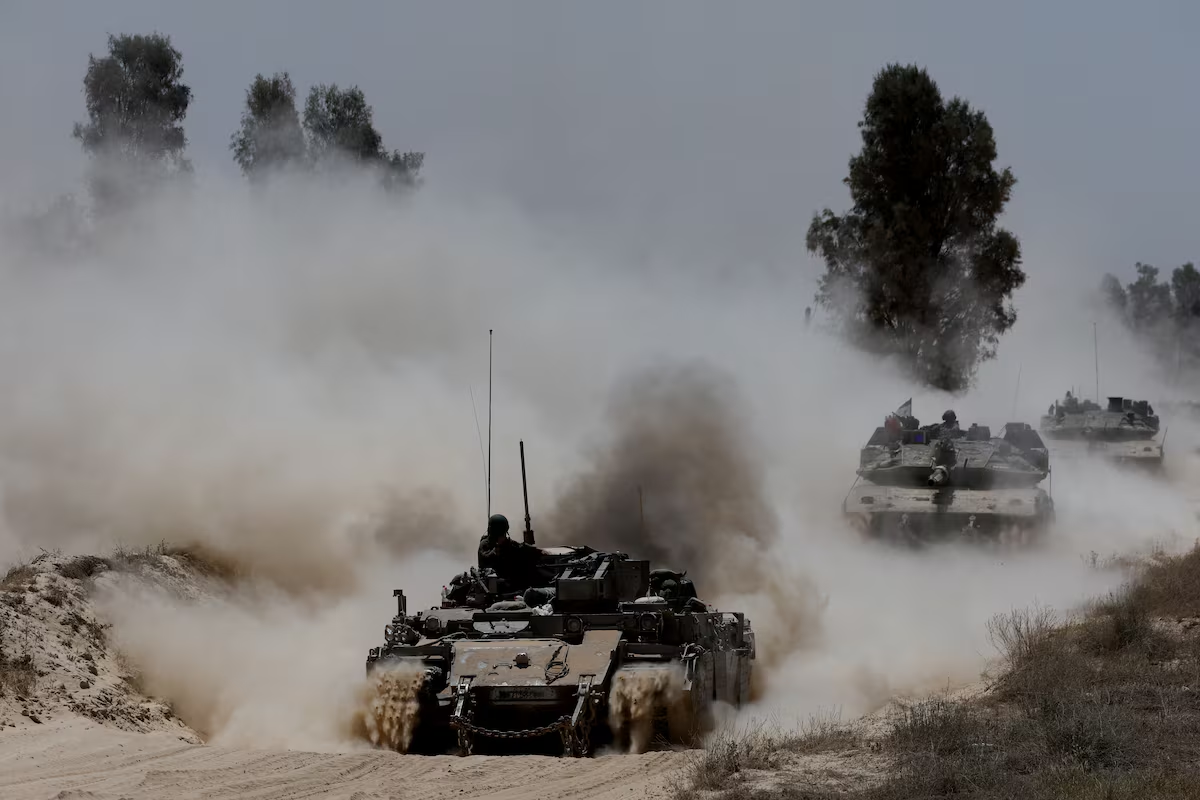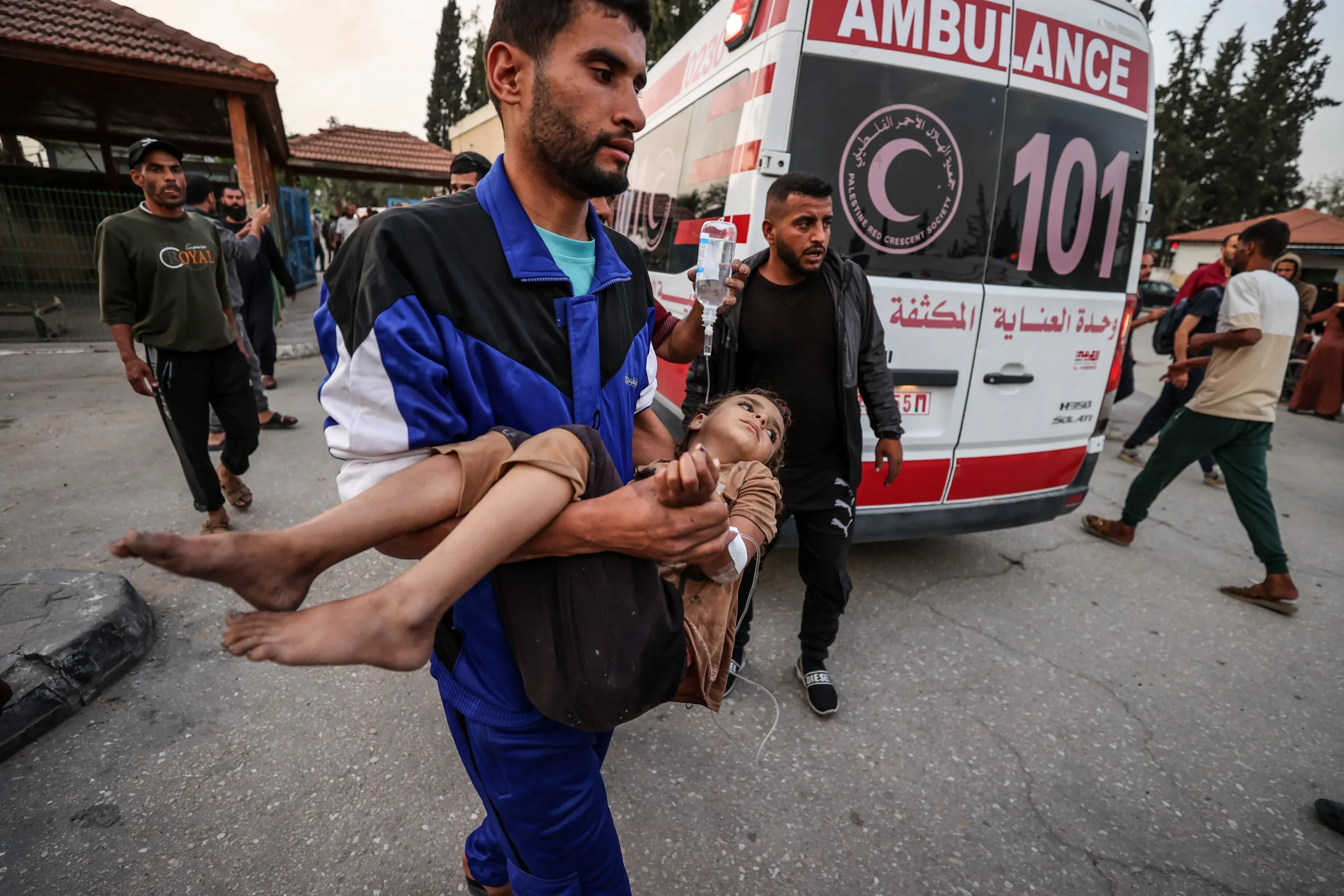Intensifying its military campaign, Israel launched a wave of airstrikes across the Gaza Strip on Monday, killing dozens of Palestinians, including women and children, as international criticism of its conduct in the war continues to escalate. The attacks struck multiple areas of the densely populated enclave, adding to the growing humanitarian catastrophe and placing further strain on diplomatic relations between Israel and its global allies.
According to Gaza health officials, at least 63 people were killed in a 24-hour period, with the heaviest casualties reported in central and southern Gaza, including in Khan Younis and Deir al-Balah. Hospitals, already overwhelmed and under-resourced, are struggling to cope with the influx of casualties. Videos from the scene showed bodies being pulled from rubble and desperate rescue efforts by civilians.
The Israeli military said the strikes targeted Hamas weapons depots, tunnel networks, and command centers. It described the operations as necessary to degrade the group’s military capabilities and insisted efforts were made to avoid civilian harm. “We are continuing to strike terrorist infrastructure with precision,” said an Israeli Defense Forces (IDF) spokesperson. “Every strike is based on intelligence and aimed at protecting Israeli citizens.”
However, critics argue that the toll on civilians has become disproportionate and indefensible. The Gaza Health Ministry reports more than 35,000 Palestinians have been killed since the war began in October 2023, the majority of them women and children. The United Nations has called the situation “a mass grave in slow motion.”
The latest wave of attacks comes as Israeli Prime Minister Benjamin Netanyahu faces mounting pressure both domestically and internationally. Humanitarian organizations, European allies, and even U.S. officials have urged restraint, especially in Rafah, where over 1.4 million displaced Palestinians are trapped with dwindling access to food, water, and medical care.
“We are horrified by the scale of the suffering,” said UN Secretary-General António Guterres. “Israel must abide by international humanitarian law and do everything possible to protect civilians. This war cannot continue unchecked.”
The United States, Israel’s closest ally, has publicly warned against a full-scale invasion of Rafah but continues to provide military aid. President Joe Biden recently approved a $1 billion weapons package for Israel, drawing fierce criticism from human rights groups and some members of Congress. “You can’t send bombs and ask for restraint in the same breath,” said Representative Ilhan Omar (D-MN).
European leaders, including those from France, the UK, and Canada, issued a joint statement on Monday calling Israel’s actions in Gaza “egregious” and demanding an immediate ceasefire. They urged Israel to open humanitarian corridors and allow unimpeded access for aid groups. The statement emphasized that Israel’s right to self-defense must not come at the cost of massive civilian suffering.
The conflict has also ignited global protests. Demonstrations have erupted in major cities around the world, with protesters calling for an end to the war and accusing Western governments of complicity. In Paris, Berlin, and New York, tens of thousands marched over the weekend waving Palestinian flags and chanting against Netanyahu and Biden.
Meanwhile, efforts at diplomacy remain stalled. Ceasefire negotiations mediated by Egypt, Qatar, and the United States have yet to produce an agreement. Hamas has demanded a full Israeli withdrawal and a permanent truce, while Israel insists on the total dismantling of Hamas before ending its operations.
As the violence in Gaza escalates, so too does the global outrage. With every airstrike, pressure builds on Israel to change course—and on its allies to stop enabling a war that is rapidly spiraling beyond control. Yet with no ceasefire in sight, the people of Gaza continue to bear the brunt of a conflict that shows no sign of ending.
Source: Reuters



